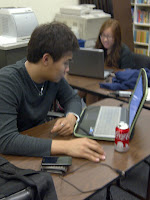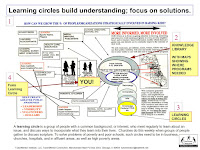Our goal was to help programs attract greater public attention and a greater flow of resources to support their efforts. Our goal also was to enable programs to learn from each other, so every program was constantly improving their impact on kids and volunteers.
I'm still doing that in 2023.
Below are two Tweets that I posted over the past few days.
The first points to the Chicago Scholars website.
This is one of the best visualizations I've found on a youth program website showing support from 11th grade, thru college, to career. It's on @ChicagoScholars website at https://t.co/hcb49j5LmA
— Daniel Bassill (@tutormentorteam) July 12, 2023
Look at websites of other youth orgs. If you see similar please share. pic.twitter.com/Ht4Qj2giJc
The second points to the Chicago Youth Programs, Inc. website.
Visit https://t.co/kvUDhGh7zE and see how @ChiYouthProgram describes their long-term support of youth through the lens of a single youth. Other #tutor #mentor orgs should try to provide similar info. Donors should reward them! pic.twitter.com/Z1y9UKFXBJ
— Daniel Bassill (@tutormentorteam) July 13, 2023
In each I'm highlighting how the organization is sharing a multi-year youth support strategy. They each do it differently, and they each start their support at different ages in a child's life. But, their websites provide plenty of reasons for a parent to want to get their child enrolled, for a volunteer to join, and for a donor to provide the operating dollars each program needs annually to continue these services.
I have not published a printed Directory since 2003. Instead we built an on-line search page in 2004 and a map-based directory in 2008 (both now only available as archives) and supported these with this list of Chicago area tutor/mentor programs.
Chicago Scholars and Chicago Youth Programs are both on these lists, along with more than 200 other youth serving programs operating in the Chicago region and many more operating around the USA and abroad.
I keep sharing this information with the goal that schools and youth serving organizations will use it as a resource to build and sustain k-12 tutor/mentor and learning programs in more high poverty areas.
Furthermore, it's my goal that teams from these same school and non-school programs spend time looking at websites of these organizations to find others who are doing a good job of communicating their strategies and who have developed long-term support programs.
Thanks for reading. I hope you'll share this article.
That's me in this picture, with Leo, who I was matched with in 1973. Leo called me a few days ago to ask what I knew about ChatGPT! That's an example of long-term connections made possible by a multi-year, volunteer-based tutor/mentor program.
Chicago and other place need more programs like Chicago Scholars, Chicago Youth Programs, etc. and the ones I led for 35 years.










No comments:
Post a Comment